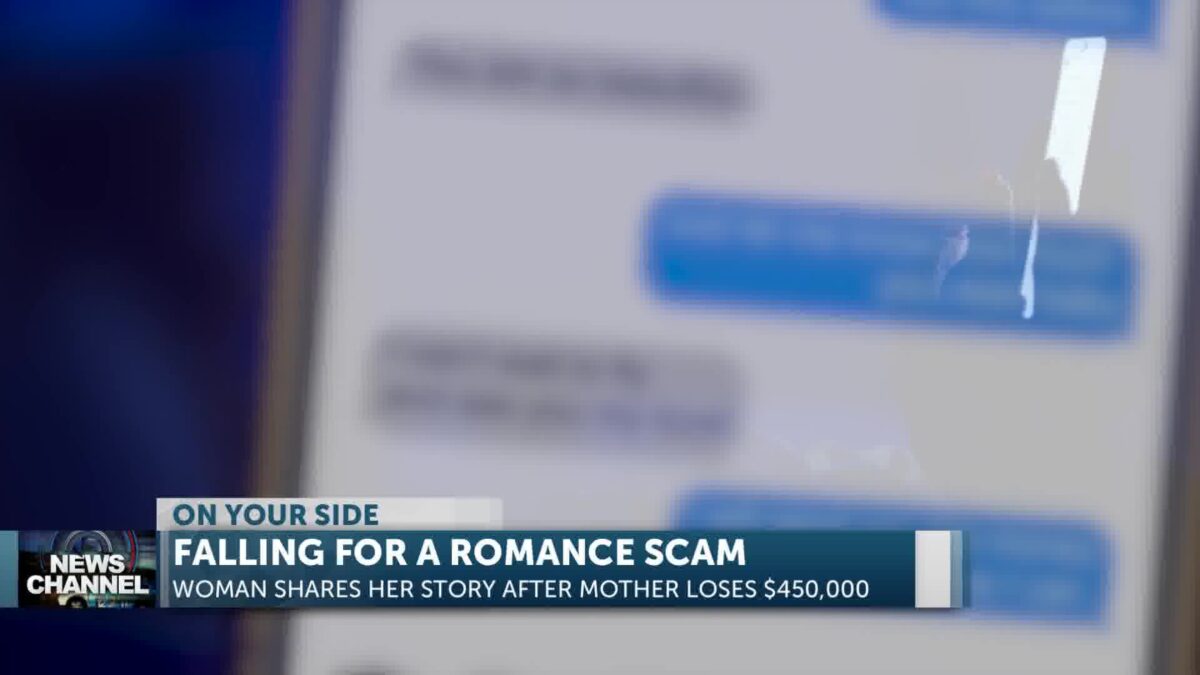Elderly Woman Loses $450K in Online Romance Scam

Ryder Christ
SANTA BARBARA, Calif. — A Massachusetts woman is warning others after her 74-year-old mother was conned out of nearly her entire retirement savings in an elaborate year-long romance scam.
Jessica, who asked that her last name not be used to protect her family’s privacy, shared her mother’s story with the Santa Barbara County District Attorney’s Office as part of its Scam Squad podcast.
Jessica said she first discovered the scam on Christmas morning when she checked her mother’s phone and saw messages with multiple individuals pretending to be country music star Vince Gill and his daughter.
“The scammer fabricated a story that Vince Gill was divorcing his wife, Amy Grant, after being falsely accused of rape and needed money to pay off the accuser,” Jessica said. “Her response to the rape was that you’re a good man, and I know you wouldn’t do that.”
Despite warnings from banks, elder services, law enforcement and family members, Jessica’s mother still believes the online relationship is real.
“She sent wire transfers, cashier’s checks, and even cash in the mail,” Jessica said. “That was pretty much all of her retirement. It was a 401(k) annuity. She also took out personal loans and cash advances on credit cards.”
Santa Barbara County District Attorney Chief Investigator Kristina Perkins said the emotional manipulation in these scams makes them among the most difficult to stop.
“These scammers are skilled manipulators,” said Perkins. “They create an emotional bond that makes it nearly impossible for victims to see the truth. That’s what makes romance scams so dangerous.”
Perkins, who also hosts the Scam Squad podcast, joined Your NewsChannel to explain how scammers operate and how to intervene before it’s too late.
“They usually target older adults, oftentimes widowed or divorced, newly entering the dating scene again and not really having experience with online dating or social media sites,” Perkins said. “We also see professionals or caregivers that don’t have time for traditional dating fall victim. And then the one that’s most concerning to me that we see are adults living alone that don’t have a lot of social interaction. It’s that social isolation—really lonely.”
She said scammers often begin with what’s called “love bombing.”
“Immediately they’ll start what we call love bombing,” said Perkins. “The victims will get affirmations, a lot of compliments… the victims will immediately get ‘I love you’ and just that emotional connection that they’re really looking for.”
Perkins urged friends and relatives to be empathetic and nonjudgmental when they suspect a loved one might be caught in a romance scam.
“My recommendation is just to ask questions—very simple questions like ‘How come you haven’t met them?’ or ‘How do you know their true identity?’… You’re just hoping to raise doubt in their own mind,” she explained. “If that doesn’t work, present similar stories online, and if you’re still concerned, call a professional. You can call our hotline.”
She added, “It’s OK. Don’t be embarrassed. That’s something that we see quite often as people are afraid to report it or talk to their friends or family about it. So don’t feel embarrassed—it’s natural to want a relationship.”
Perkins said most scams begin online and stay there, but in rare cases, they may involve video chats. She also warned that a key red flag is when a romantic interest asks for money—especially if you haven’t met them in person.
“If you have not met the person face-to-face and all of a sudden there’s some sort of emergency and they’re asking you for money—talk to your friends or family about that,” Perkins said. “Give our hotline a call, and we’ll walk through that with you.”
She noted that most scammers operate from outside the U.S., although some have been traced to other states. Recovering lost funds is rare, but not impossible.
The Santa Barbara County District Attorney’s Office encourages anyone with concerns about potential scams to call its fraud hotline at (805) 568-2442.